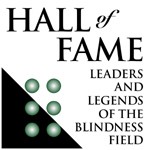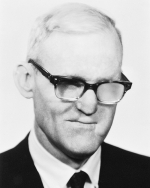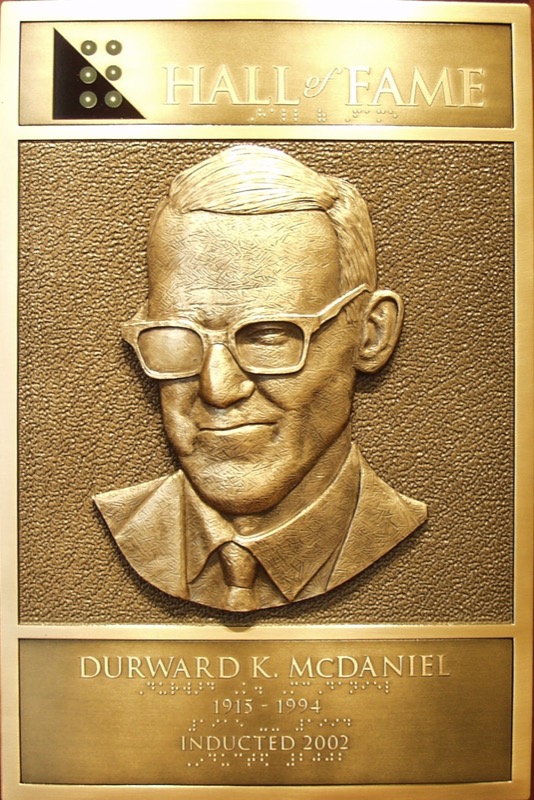Durward K. McDaniel
Inducted 2002
Durward McDaniel (1915-1994) was born in Oklahoma and lost his sight at the age of 14 as the result of an oil field accident. He attended the Oklahoma School for the Blind, the University of Oklahoma and its law school. He opened a law office in Oklahoma City and qualified to practice before the Supreme Court. He was married to Aileen and they had one daughter. In 1949 he co-founded the Oklahoma League for the Blind and served as president of the Oklahoma Council of the Blind from 1947 to 1950.
Durwood McDaniel has been credited with being one of the primary forces in the movement to found the American Council of the Blind. Notwithstanding the status of a fledgling organization with limited resources, he persuaded ACB’s National Board to create the office of a national representative to provide a presence on Capitol Hill. He served as its first national representative in Washington (occasionally without a full pay check) from 1968 to 1981 and at one time as its vice president. In 1969 the first special interest affiliates were formed, and ACB was off and running. For a time he was editor of The Braille Forum. Recognizing the commonality of problems of blind people with other minorities, he sought for and obtained admission of the American Council of the Blind into the Leadership Conference on Civil Rights.
Durward McDaniel believed that through skillful influence on state and federal legislative processes, hard work in state and federal governmental regulatory processes, and fervent advocacy at local, state and national levels, the quality of life for all blind persons could be improved. He was an expert on the Randolph-Sheppard vending program and starting in 1981 served as legal counsel for RSVA, an affiliate of ACB. He chaired the Affiliated Leadership League of and for the Blind of America and was a founding member of the American Coalition of Citizens with Disabilities. He was one of the leading exponents of the provision in the Wagner-O’Day Act mandating the 75/25 percent ration of blind to sighted workers in workshops. He worked diligently for the Fully Insured Rule of Title II of the Social Security Act which qualified blind persons for benefits. He was well versed in and an effective shaper of legislation that affected blind Americans.
In 1991 Durward McDaniel received the Migel Medal for outstanding services to the blind from the American Foundation for the Blind. In 1993 he was honored with the Distinguished Service Award of the President of the United States. He was especially passionate about and dedicated to the betterment of the lives of average or small-town blind Americans. He was a man of ideas, a man of action, and a man of tireless energy. Few names are better known among the blind in this country than that of Durward McDaniel. He was known for his self-sacrificial deeds, his unwavering principles, and his deep concern for his fellow blind.


